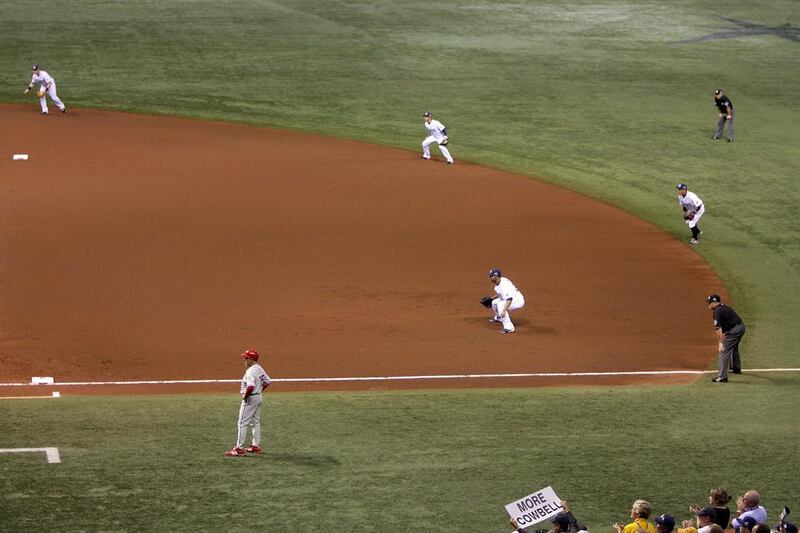For a sport enjoying its rudest financial health ever, people seem determined to declare baseball broken.
The latest salvo from the “baseball-is-dying” industrial complex is that the game must take action to increase run production or risk hastening its slide into irrelevance. Among the suggestions gaining traction are banning the new defensive shifts that are vexing sluggers and adding the designated hitter in the National League.
It is true that Major League Baseball is experiencing some of its lowest batting averages and on-base percentages since the DH era began in 1973, in the American League.
A crop of talented pitchers, batters who know how to swing hard but not necessarily hit, and the aftereffects of the clampdown on performance-enhancing drug use have helped limit scoring to an MLB average of 4.1 runs per game, among the lowest since the dead-ball era.
Whether scoring is down is not the pertinent question, though. The question is whether the lack of runs is driving people away from baseball.
Given that MLB’s 10 best seasons of total attendance have all come in the past decade and massive TV contracts have more money sloshing around, it would be difficult to argue that baseball needs a radical overhaul.
That professional hitters and managers should be so stymied by teams rearranging their fielders speaks to their surprising lack of imagination and gumption. Consider this response from a veteran major-league hitting coach in a recent Sports Illustrated article: “The shifts. Get rid of them. You need to come up with a definition of illegal defence. I know you’ll say, ‘Well, you’re a hitting coach. Of course you would [say that].’ But it’s something that has really changed the game.”
Defensive shifts have long been part of baseball, with the earliest documented shift coming in 1870. To suggest they just started killing the game is nonsense.
If teams want to beat these shifts, teach players at all levels to hit rather than just swing the bat. Bunt into the gaps left by the shift, hit to the opposite field and learn to take pitches. If runs are a concern, teach hitters a good two-strike approach to help lower the record-high 20.3 per cent rate at which they are striking out this season. Managers can fight strategy with strategy, rather than brute force or legislation.
Meddling with the rules by prohibiting shifts or making the DH universal would interrupt the natural ebb and flow between pitchers and hitters.
Drastically changing the game to suit lumbering, one-trick muscle men will not benefit fans, the teams or baseball itself.
pfreelend@thenational.ae
Follow us on Twitter at SprtNationalUAE





